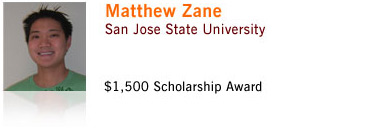
Right to abstain from lethal injection
Originally published in the San Jose State University Spartan Daily
In the early morning hours last Tuesday, Barbara Christian sat by her phone for a call that she had been awaiting for 25 years.
It was supposed to come from the San Quentin State Prison, informing her that the man who brutally raped, mutilated and murdered her daughter in cold blood had been put to death.
Instead, because two anesthesiologists failed to fulfill their duties, Christian received the devastating news that her excruciating quarter-century quest for justice had not come to an end after all. The two doctors were hired by state correction officials to make sure Morales was unconscious while the lethal injections were administered, not to execute him.
They withdrew from their agreement at the last minute, leaving correction officials no other option than to execute Morales with an unproven method that would likely take much longer and be more painful, which they declined to do. Sentencing someone to death is not something that should be taken lightly, and it wasn’t. Morales never denied being guilty of premeditated murder of 17-year-old high school senior Terri Winchell.
Morales started his assault by attempting to strangle Winchell from behind in a car with his belt. When the belt broke, Morales beat Winchell with a hammer until her face was longer recognizable.
He then dragged her face down across a road into a vineyard, where he raped her and mutilated her body by stabbing her in the heart.
A judge and jury must unanimously decide that a person’s crime should be punished by death, and in this case, they did. Despite numerous appeals by Morales’ lawyers, the decision was upheld. The justice system had spoken, and it saw fit to dole out the most solemn and severe of punishments: death. The penalty was decided upon through a long, deliberate process that took 25 years. Yet, in a few short minutes, these anesthesiologists decided that their personal ideologies and agendas were more important than upholding the laws of the legal system, and in effect granted Morales clemency.
It is our right as citizens to debate whether or not criminals should be sentenced to death. It was not, however, the anesthesiologists’ place to do what they did.
Until the laws are changed saying otherwise, they had a duty to perform the job they agreed to do, Like pharmacists who refuse to fill birth-control pill prescriptions because of moral or religious objections, these workers should not have the right to choose what laws they follow or enforce just because they don’t match their personal beliefs.
Of course, nobody should blindly follow whatever their superiors say, but we have a legal system in place to air grievances and objections regarding laws and social policies. If the doctors did not agree with capital punishment, they should have taken it up with the courts instead of abandoning their jobs. Better yet, they should not have agreed to do the job in the first place.
Due to the selfish actions of these two doctors who let their beliefs trump the American legal system, Barbara Christian must continue to live with a 25-year nightmare that started with the death of her daughter. It should have ended with a phone call informing her that Morales had met the same fate.

